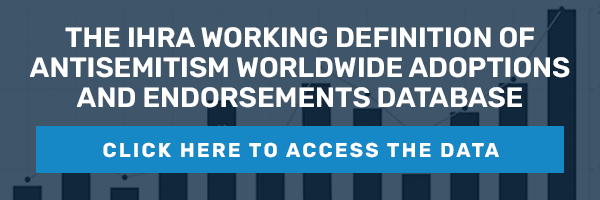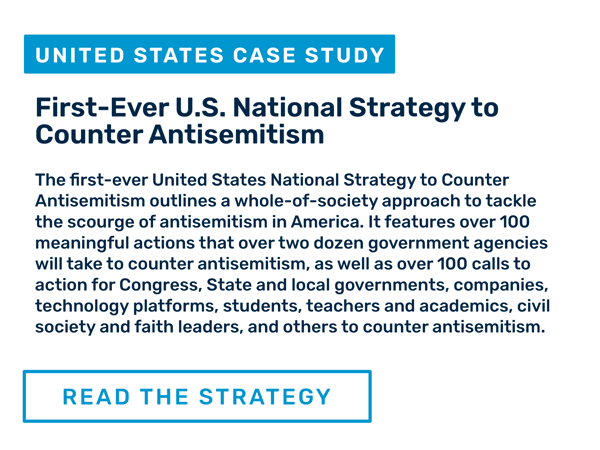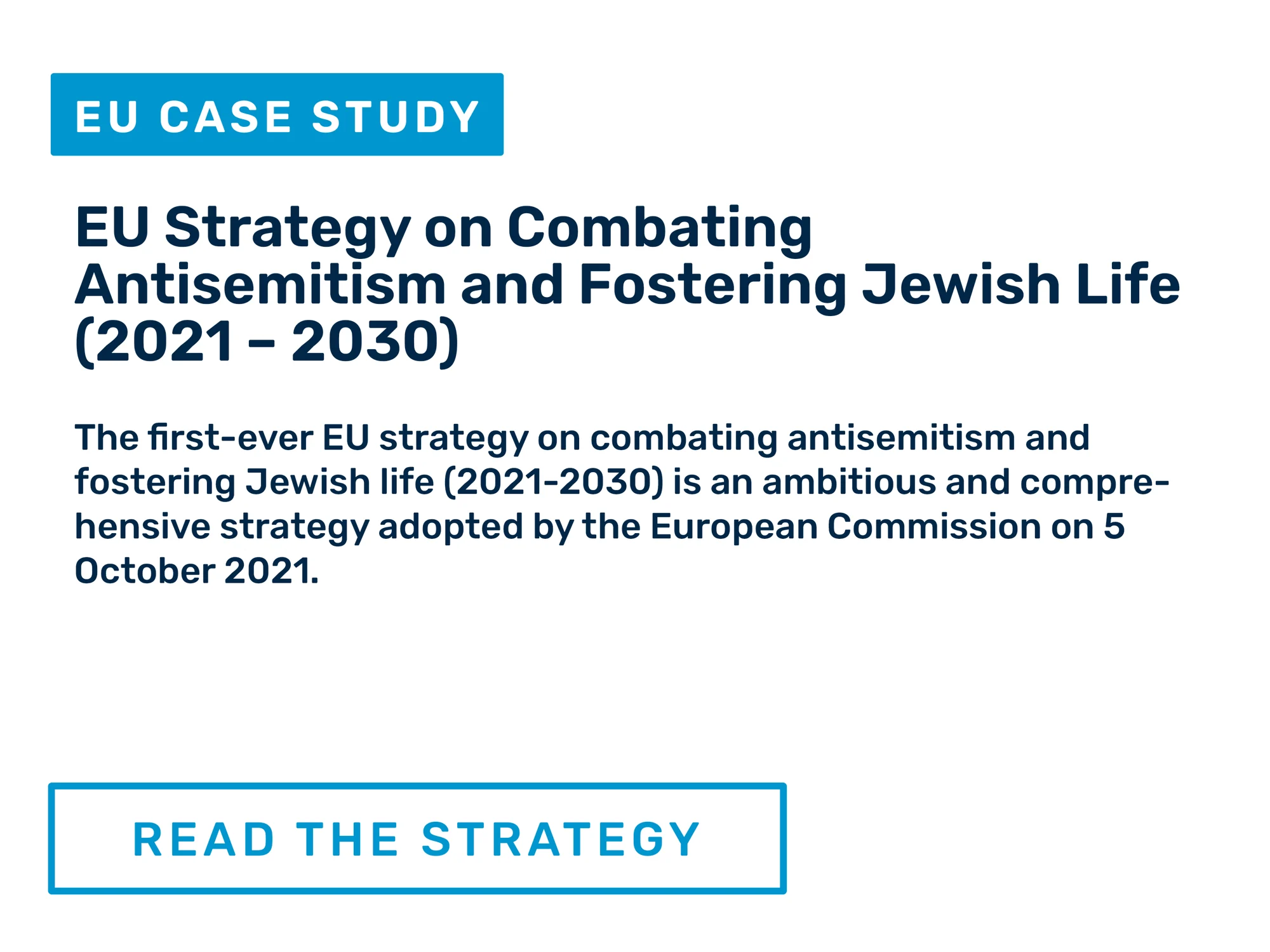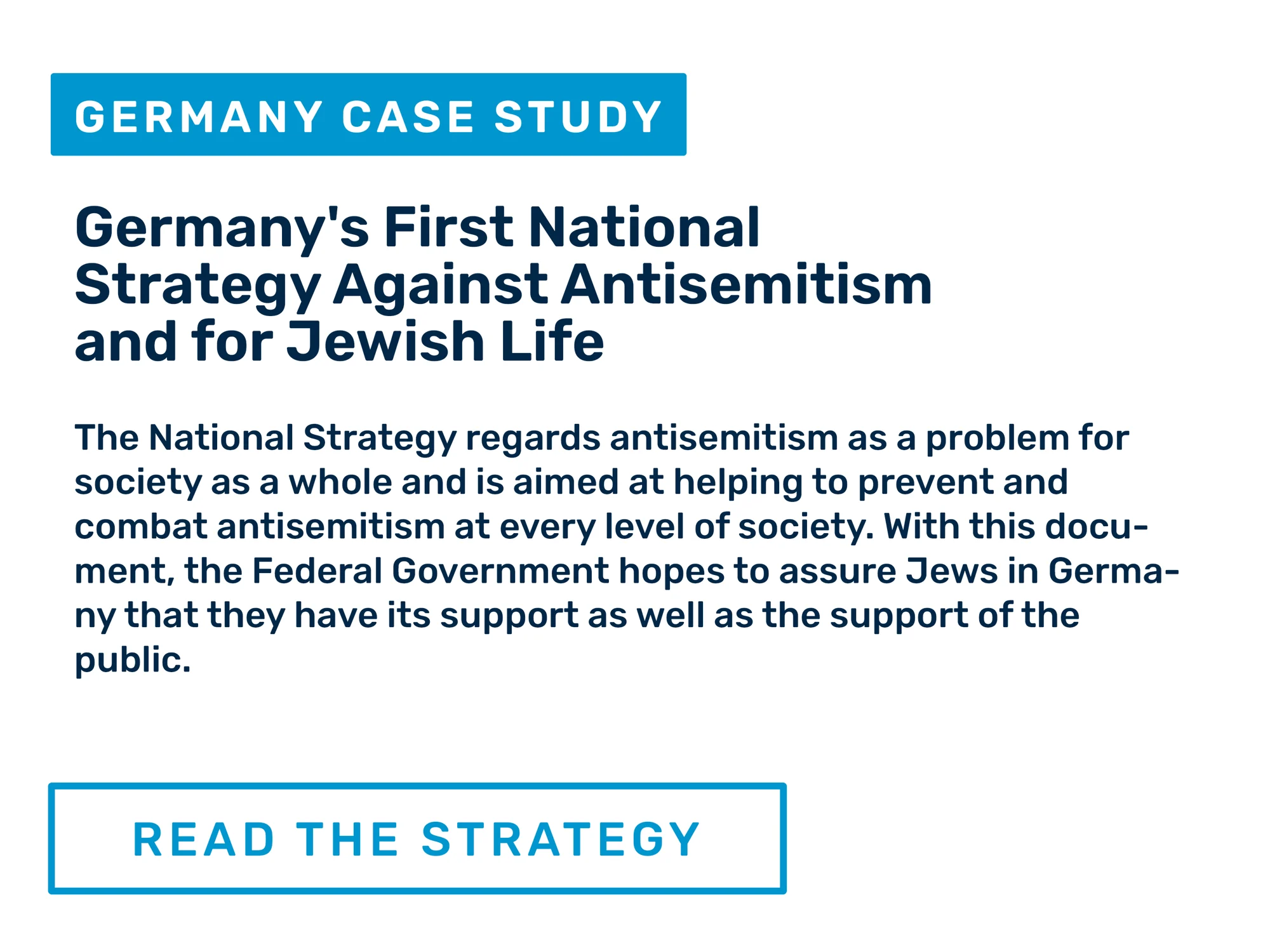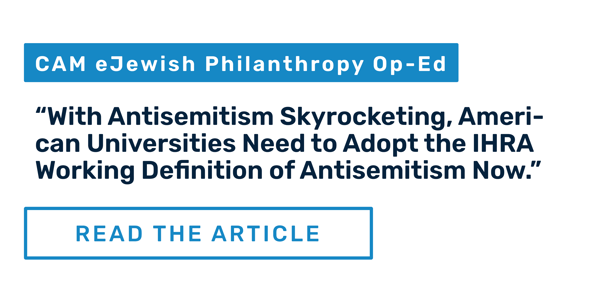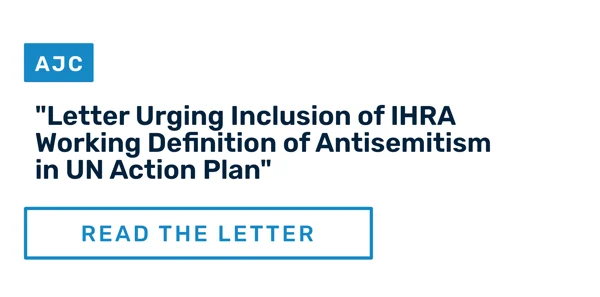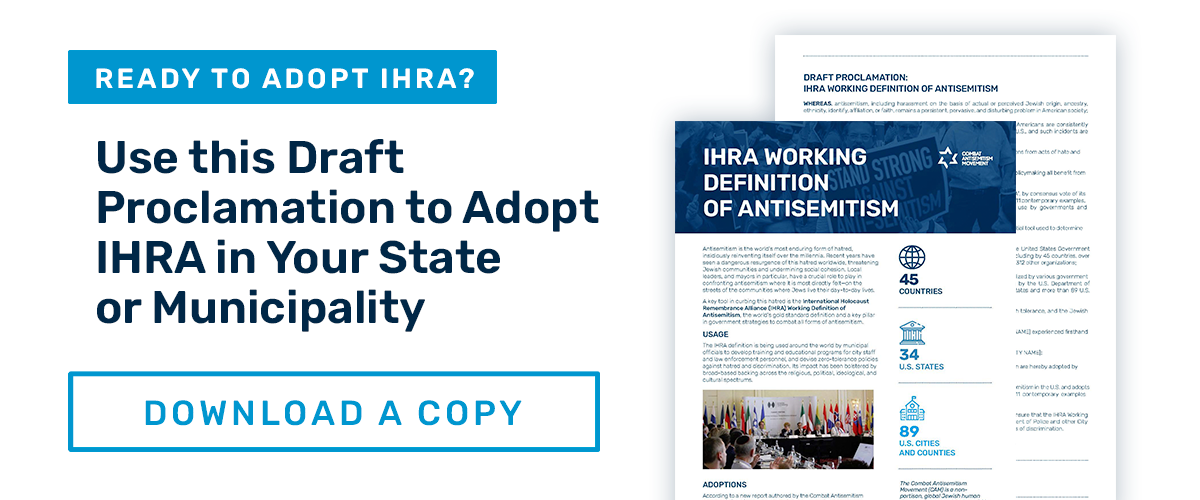
Antisemitism is the world’s most enduring form of hatred, insidiously reinventing itself over the millennia.
Recent years have seen a dangerous resurgence of this hatred worldwide, threatening Jewish communities and undermining social cohesion. To effectively combat this phenomenon, there must first be a commonly agreed upon understanding of what it is. The International Holocaust Remembrance Alliance (IHRA) Working Definition of Antisemitism was devised for this very purpose.
Since the IHRA Working Definition of Antisemitism was adopted by the International Holocaust Remembrance Alliance (IHRA) in 2016, it has become the most widely recognized barometer in the collective effort against Jew-hatred, serving as an essential tool to identify and delineate all contemporary manifestations of this age-old societal scourge. The definition's proven effectiveness is rooted in the mainstream consensus that has coalesced around it worldwide - with a diverse array of international institutions and organizations, national and local governments, NGOs, universities, athletic clubs, and corporations using it as a non-legally binding guiding framework for recognizing modern-day iterations of antisemitism, training and educational programs, policymaking initiatives, and judicial process.
As of January 1, 2026, a total of 1,334 entities worldwide have adopted the IHRA Working Definition of Antisemitism. Among those, 47 national governments have done so, reflecting a growing international consensus that confronting antisemitism requires clear standards for identifying and addressing this enduring hatred.
IHRA Working Definition Adoptions
1,334
Learn More About the IHRA Working Definition of Antisemitism by Watching the Video Below
IHRA Adoptions Presented by CAM's
Antisemitism Research Center



.png?width=1200&length=1200&name=US%20State%20IHRA%20Map%20(9152024).png)
.png?width=1200&length=1200&name=Brazil%20IHRA%20(9252024).png)
As of January 1, 2026, a total of 1,334 entities had adopted or endorsed the IHRA Working Definition of Antisemitism.
The surpassing of the 1,300 milestone since the 2024 IHRA report compiled by the Combat Antisemitism Movement (CAM) and the Center for the Study of Contemporary European Jewry at Tel Aviv University is a telling indicator of the far-reaching impact and influence of the definition and its accompanying 11 contemporary explanatory examples of prejudiced and discriminatory behavior against the Jewish people.
In 2025, 67 new adoptions and endorsements were reported, and another three were added through retroactive data collection from previous years.
Key Findings From the 2024
Adoptions & Endorsements Report
CLICK HERE TO DOWNLOAD THE REPORT
47 COUNTRIES HAVE ADOPTED THE DEFINITION
In total, 47 countries, including most Western democracies, have adopted the definition—34 IHRA member states, 5 IHRA observer states, and 8 nations unaffiliated with IHRA.
In July 2025, the Republic of Costa Rica became the sixth Latin American country to adopt the IHRA Working Definition of Antisemitism.
These 47 national adoptions of the IHRA Working Definition of Antisemitism include 26 out of 27 EU member states, Argentina, Australia, Bahrain, Brazil, Colombia, Costa Rica, El Salvador, Guatemala, Israel, the Philippines, Panama, South Korea, Switzerland, the United Kingdom, the United States, and Uruguay.
316 NGO'S, INSTITUTIONS AND OTHER ORGANIZATIONS HAVE ADOPTED THE DEFINITION
4 NGOs, corporations, religious organizations, student clubs, political parties, and other groups adopted the IHRA Working Definition of Antisemitism so far in 2024. The organizations that have done so this year are the Jewish Federation of the Sacramento Region, Temple Beth Israel Pomona, the Muslim American Leadership Alliance (MALA), and the Counter Extremism Project.
These four public organization adoptions so far in 2024 bringing the all-time total to 316 (258 public and 58 private) as of February 1, 2025.
349 EDUCATIONAL INSTITUTIONS
HAVE ADOPTED THE DEFINITION
A key category of the IHRA Working Definition of Antisemitism adoptions has been institutions of higher education, with 349 overall.
1 university (Ben Gurion University)adopted the definition in 2024 (2 adoptions from previous years were added).
In January 2025, Harvard University became the first university of the year to adopt the IHRA Working Definition of Antisemitism.
555 NON-FEDERAL GOVERNMENT ENTITIES
HAVE ADOPTED THE DEFINITION
553 non-federal government entities (including regional, provincial, state, county, and municipal bodies) have adopted the definition, with 28 doing so in 2024.
In the United Kingdom, 271 regional, local, and municipal governments have adopted the definition, as have 135 in the United States, 56 in Argentina, 30 in Canada, 15 in Italy, 12 in Brazil, nine in Germany, eight in France, six in both Australia and Poland, four in Spain, and three in Venezuela.
Support for the IHRA Working Definition of Antisemitism transcends the political and ideological spectrum, coming from entities and individuals of a broad swathe of religious, national, and cultural backgrounds:
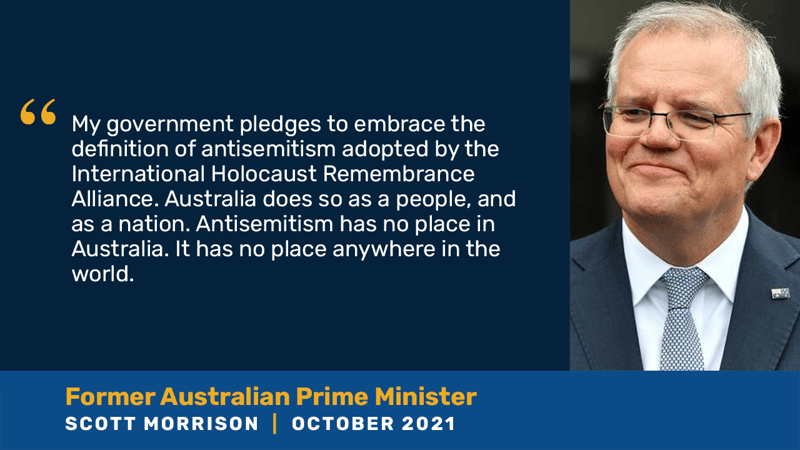

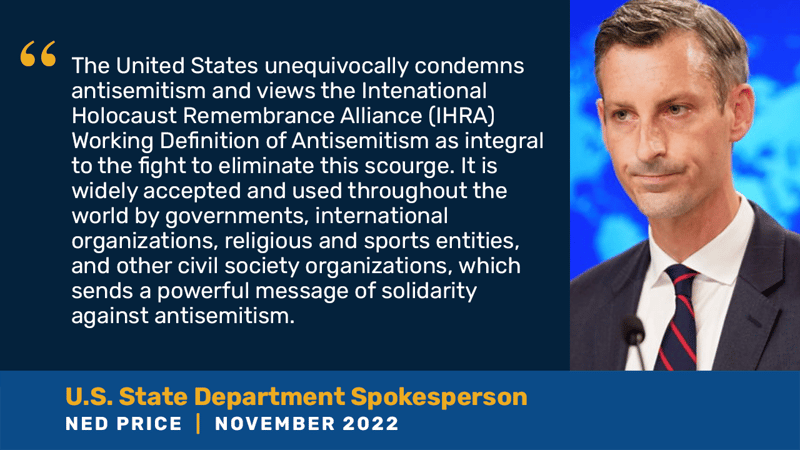
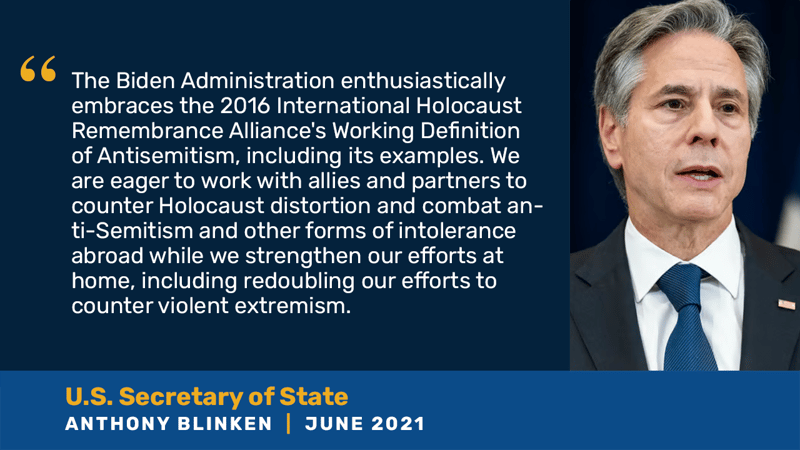
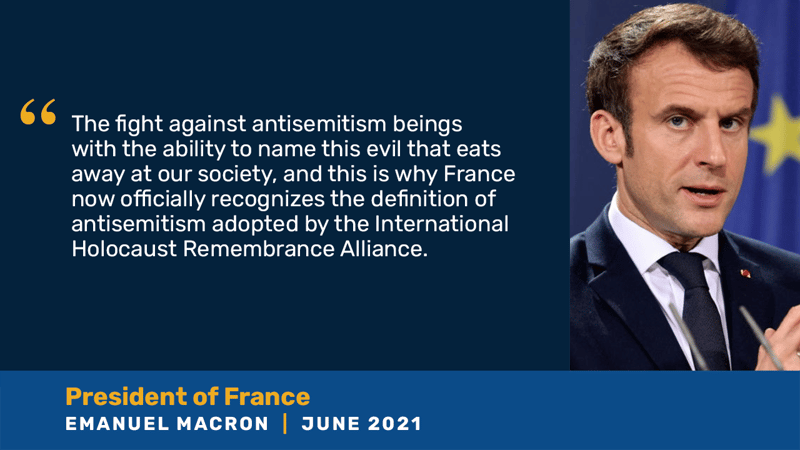
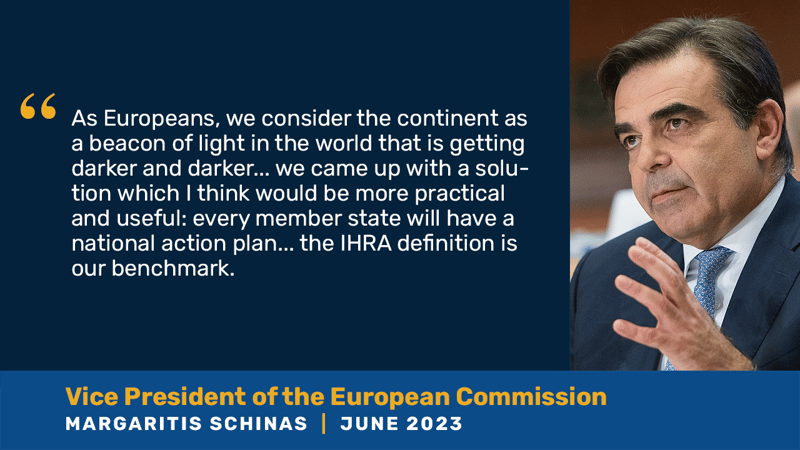
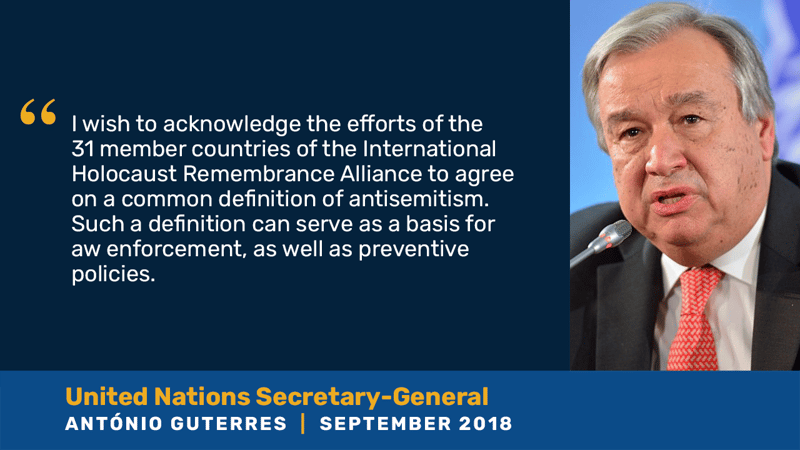
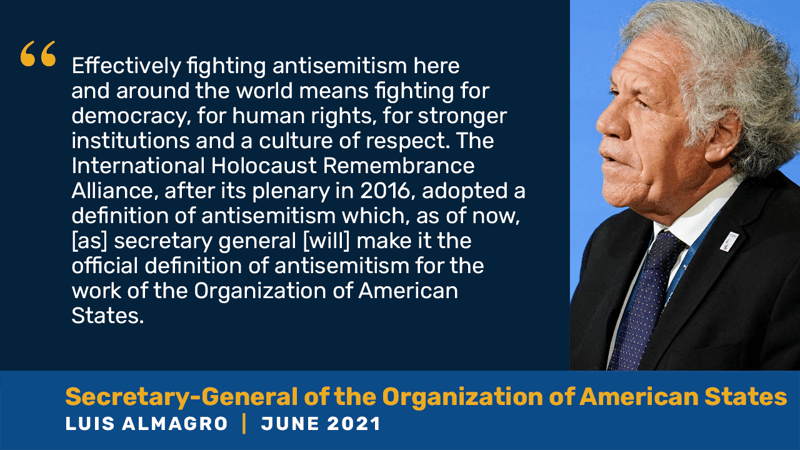
Report an IHRA Adoption
Additional Resources
Overall, 46 countries—including the United States, Canada, Germany, the United Kingdom, and France—have adopted the definition. In the U.S., 37 state governments have done so, either via legislation or executive actions, along with 98 city and county governments, with Los Angeles, Washington D.C., Miami, Dallas, and Wichita, among others.

.png)


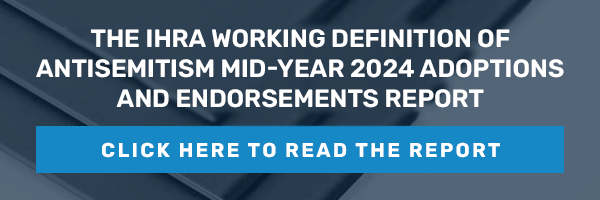
.png)
.png)
